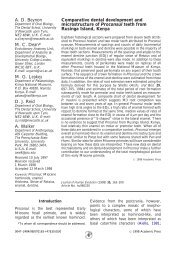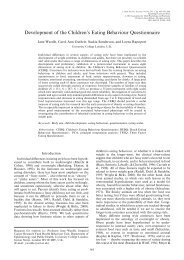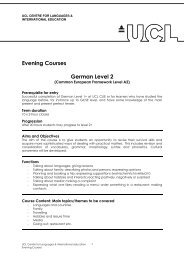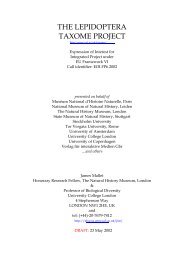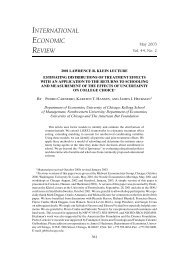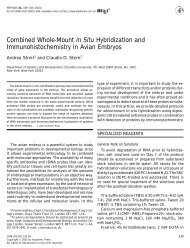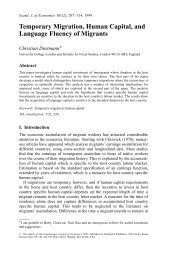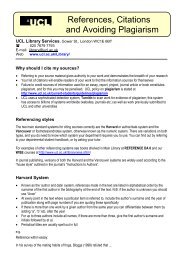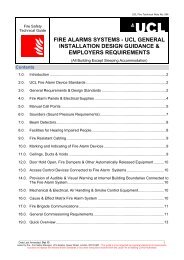The Ambitions of Contract as Promise Thirty Years On ... - UCL
The Ambitions of Contract as Promise Thirty Years On ... - UCL
The Ambitions of Contract as Promise Thirty Years On ... - UCL
You also want an ePaper? Increase the reach of your titles
YUMPU automatically turns print PDFs into web optimized ePapers that Google loves.
<strong>Ambitions</strong> <strong>of</strong> <strong>Contract</strong> As <strong>Promise</strong> 24 August 2012 discussion draft: do not quote or reproduce without permission<br />
claimant is the obligor, or <strong>of</strong> re<strong>as</strong>onable care if the claimant is an innocent third<br />
party, <strong>as</strong> for instance a holder in due course. But these are not arguments about<br />
real, though second-order, agreement; they are arguments about the efficiency or<br />
fairness <strong>of</strong> various benefits and burdens, or about the proper allocation <strong>of</strong> social<br />
resources in adjudicating disputes. Imagine the extreme c<strong>as</strong>e in which the<br />
purported obligee insists that it is not his signature on the document at all, that it<br />
is a forgery. <strong>The</strong>re are burdens <strong>of</strong> pro<strong>of</strong>, evidentiary rules and limits to how<br />
much time a court will devote to resolving the issue. <strong>The</strong>se procedural rules can<br />
be made to look like Schwartz and Scott’s arguments about interpretive rules;<br />
but such agreement on background procedural matters is hypothetical, the kind<br />
that Robert Nozick h<strong>as</strong> written are not worth the paper they are not written on.<br />
<strong>The</strong> two can be brought closer together, <strong>as</strong> in c<strong>as</strong>es <strong>of</strong> what are called fraud not<br />
in the execution but in the inducement. <strong>The</strong> victim <strong>of</strong> the fraud does not claim,<br />
for instance, that he w<strong>as</strong> told that he w<strong>as</strong> just giving his autograph (the rest <strong>of</strong> the<br />
document artfully folded over). Rather he makes the more attenuated claim that<br />
he w<strong>as</strong> led to believe that this mortgage agreement is just a formality necessary<br />
to obtain a loan on quite different terms. Scott and Schwartz carefully confine<br />
their argument to agreements between business people—what the UCC calls<br />
agreements between merchants—where the majoritarian default rule with<br />
32




